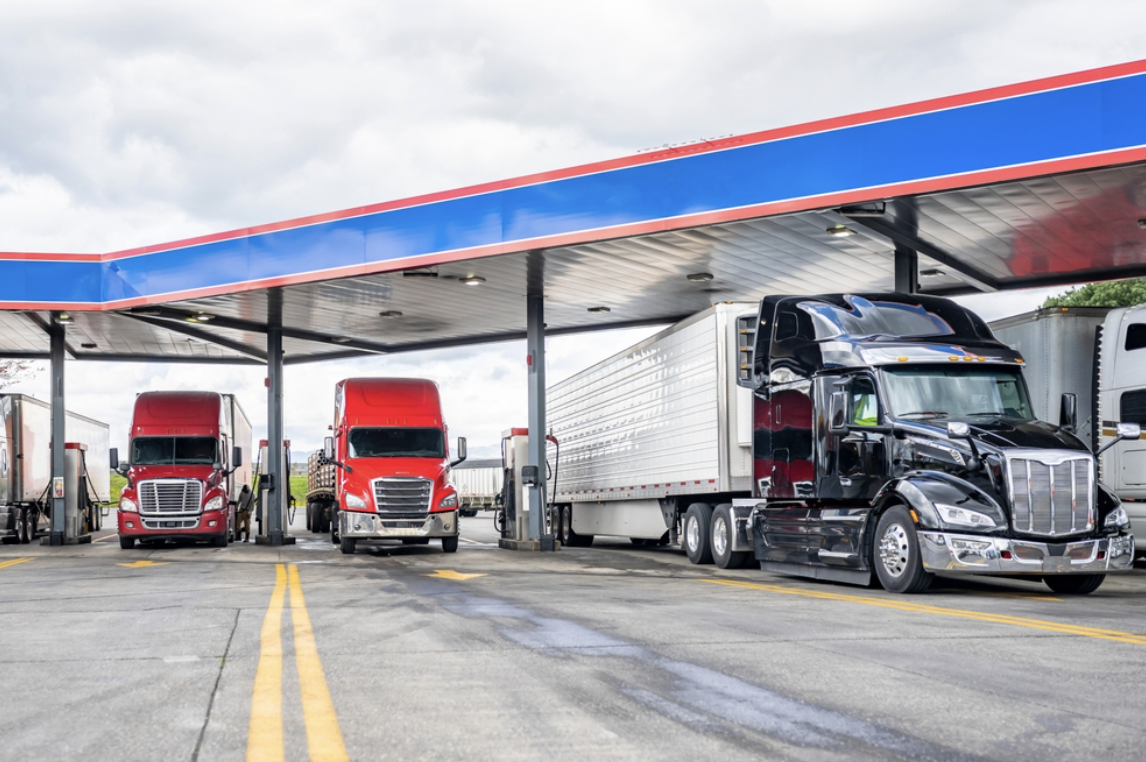Fuel costs are one of the largest expenses for truck drivers, especially with fluctuating fuel prices and the demands of long-distance hauls. Whether you’re an owner-operator or driving for a company, finding ways to save money on fuel can significantly improve your bottom line. In this post, we’ll dive into practical and proven strategies that help truck drivers boost fuel efficiency, ultimately saving money at the pump.
The Importance of Fuel Efficiency for Truck Drivers
As a truck driver, fuel is not just an operating cost—it’s a major factor in how efficiently you run your business. While you might not have control over the fluctuating price of diesel fuel, you do have control over how efficiently your truck uses it. By improving fuel efficiency, you can stretch every gallon of fuel, increasing the profitability of each trip.
For independent truck drivers, savings on fuel can have a direct impact on your income. For fleet owners, improving fuel efficiency can lower operating costs and enhance the overall performance of your business.
Factors That Affect Fuel Efficiency
Before diving into tips and techniques, it’s important to understand what factors influence fuel efficiency in trucking. These can be divided into two main categories: truck-related and driver-related.
Truck-Related Factors
- Truck Engine Type and Maintenance
The type of engine in your truck plays a huge role in how efficiently it burns fuel. Newer engines are typically more fuel-efficient, especially those with newer technology that meets modern emission standards. Regular maintenance, such as oil changes, tire rotations, and air filter replacement, ensures that the engine is running at optimal efficiency. - Aerodynamics of the Truck
The design of your truck, including the shape of the cab, trailer, and accessories like roof fairings, can affect fuel consumption. Trucks that are more aerodynamic face less wind resistance, helping to reduce fuel usage. - Weight and Load Distribution
Carrying excess weight or unevenly distributing a load can negatively impact fuel efficiency. A heavier load requires more fuel to move, and poor load distribution can cause unnecessary strain on the engine and other components.
Driver-Related Factors
- Driving Habits
How you drive your truck is one of the most significant factors influencing fuel efficiency. Aggressive driving, such as hard braking, rapid acceleration, and speeding, can waste fuel. Smooth, steady driving with consistent speeds helps maintain fuel efficiency. - Speed
Maintaining a steady speed within the optimal fuel-efficient range is key. Driving too fast or too slow can reduce fuel efficiency. Trucks tend to consume more fuel at higher speeds, so finding a balance is essential.
Tips for Improving Fuel Efficiency
Now that we’ve covered the factors that affect fuel efficiency, let’s look at specific strategies that can help truck drivers save money at the pump.
Optimize Your Route
Planning the best route can help you avoid unnecessary detours, traffic jams, and construction zones. Use GPS systems that provide real-time traffic updates and suggest alternate routes when needed. The less time you spend idling or driving in traffic, the less fuel you’ll consume.
Additionally, consider how your route is laid out in terms of terrain. Steep inclines require more fuel to ascend, so choosing flatter routes when possible can save a significant amount of fuel over long trips.
Regular Vehicle Maintenance
Routine maintenance is essential for ensuring that your truck runs as efficiently as possible. A well-maintained vehicle consumes less fuel and experiences fewer breakdowns.
- Oil Changes: Make sure to change your oil regularly. Clean oil reduces friction in the engine, allowing it to run more smoothly and efficiently.
- Tire Maintenance: Keeping tires properly inflated ensures that your truck uses fuel efficiently. Underinflated tires create more rolling resistance, which leads to higher fuel consumption.
- Air Filters: Clean air filters allow for better airflow to the engine, which improves fuel efficiency.
- Fuel System: Regularly cleaning the fuel injectors ensures optimal fuel flow, contributing to better engine performance and fuel efficiency.
Monitor Your Speed

Speeding is one of the biggest culprits in increased fuel consumption. Driving at speeds above 65 miles per hour can result in significant fuel loss. For every 5 mph over 60 mph, your fuel economy can decrease by about 10%.
To optimize fuel efficiency, try to maintain a consistent speed within the manufacturer’s recommended range. Use cruise control when driving on highways to maintain steady speeds and prevent unnecessary acceleration and braking.
Use Cruise Control Wisely
Cruise control is a powerful tool for maintaining a consistent speed, especially on highways. By using cruise control, you can avoid speeding up and slowing down unnecessarily. This smooths out the driving process and reduces the amount of fuel you burn.
However, avoid using cruise control on hilly terrain. When driving uphill, cruise control may cause the engine to work harder, leading to excessive fuel consumption. It’s better to manage speed manually on inclines to ensure fuel efficiency.
Reduce Idling Time
Idling is one of the most common and unnecessary ways to waste fuel. Leaving the engine running while you wait can quickly eat into your fuel reserves, especially when idling for long periods.
When stopping for more than 5 minutes, consider turning off your engine. Modern trucks are built to handle restarts without causing harm to the engine or battery, so there’s no need to let the engine run unnecessarily.
Implement Smart Driving Techniques
Fuel-efficient driving involves more than just reducing speed. Here are some driving techniques that can help you save fuel:
- Gradual Acceleration and Deceleration: Avoid rapid acceleration and sudden braking. Gradual changes in speed help conserve fuel and reduce engine strain.
- Coasting: Instead of constantly accelerating or braking, coast when possible to maintain momentum. This technique saves fuel by reducing the need for extra power.
- Anticipating Traffic Flow: Keep an eye on traffic conditions ahead and adjust your speed early. This can prevent the need for sudden stops or starts, which are fuel-draining actions.
Maximize Cargo Efficiency
Efficient cargo loading is essential for fuel-saving. Excess weight not only increases fuel consumption but also puts more strain on the engine, transmission, and other parts of the truck.
Ensure that your load is evenly distributed, as uneven loading can cause the truck to work harder. Whenever possible, avoid carrying unnecessary weight, and make sure your cargo is securely fastened to prevent shifting.
Invest in Fuel-Efficient Equipment
Consider investing in fuel-saving technologies and upgrades. For example, aerodynamic accessories such as side skirts, wheel covers, and cab fairings can reduce wind resistance and improve fuel efficiency by as much as 5%.
Low-rolling-resistance tires also contribute to better fuel economy. These tires are designed to minimize friction, allowing your truck to roll more easily and use less fuel.
Track and Analyze Your Fuel Consumption
One of the best ways to reduce fuel costs is by keeping a close eye on your fuel consumption. Use fuel management tools to track your fuel efficiency over time. This will allow you to spot patterns, identify areas where you could improve, and compare the efficiency of different routes or driving techniques.
Use Fuel-Efficient Routes and Timing
Certain routes and times of day may offer better fuel efficiency. Avoiding congested routes and peak traffic hours can help reduce the time spent idling or sitting in traffic. Plan your trips so you’re driving during times when traffic is light and you can maintain a consistent speed.
Conclusion
Fuel efficiency is critical to a truck driver’s bottom line. While it’s impossible to control the price of fuel, there are plenty of strategies you can use to reduce fuel consumption and save money. By maintaining your vehicle, optimizing your driving habits, and utilizing technology, you can improve fuel efficiency, cut costs, and increase your profitability.
By consistently applying the tips and techniques discussed in this post, truck drivers can enjoy lower fuel costs and keep more money in their pockets, making every trip that much more profitable.

